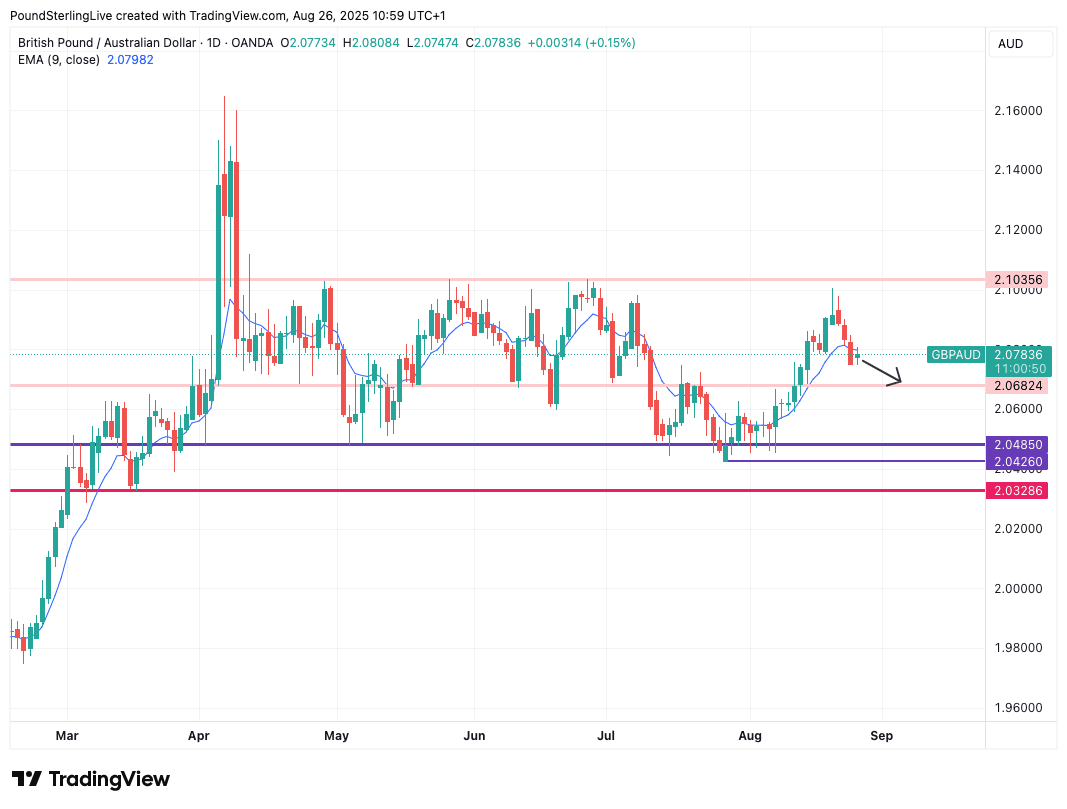
Image © Adobe Images
The Australian Dollar is putting in a spell of outperformance.
The Australian Dollar proved one of the bigger financial market winners in the wake of Friday's speech from Federal Reserve Chair Jerome Powell to a conference held in Wyoming, where he effectively greenlit an interest rate cut next month.
The Australian Dollar surged in anticipation of lower interest rates in the U.S., which is deemed good for stock markets and associated pro-risk assets that have a high correlation to stocks; step up the Australian Dollar!
Gains by the Aussie were recorded against the EUR, USD, GBP and the majority of its G10 peers.
"After a week of nervousness, Powell gave the markets what they wanted on Friday with a directionally dovish shift in his tone. Whilst some will argue that the committee remains balanced, retaining some nervousness about the tariff inflation risk, it’s clear they are also now concerned about the labour market," says a note from Longview Economics.
That impetus provided by Powell's signal appears to have extended into the new week, which affords the Aussie Dollar a little more momentum, and why we think the turn lower in the Pound to Australian Dollar pair can run a little further.
GBP/AUD traded as high as 2.1006 last week as a multi-day rally faded and topped out. Subsequent days of selling pressure now pushes the pair below the nine-day exponential moving average (EMA), and flips our Week Ahead Forecast model from the upside to the downside.
The result is that GBP/AUD can extend the short-term selloff to 2.0682.
Stepping back, the pair is still snuggly embraced by the March-August range that continues to dictate a sideways trend in the pair and suggests we aren't overly bearish on GBP just yet.
In fact, big picture, this is typical GBP/AUD action: periods of intense directional moves followed by prolonged spells of consolidation.
The technical preference would be for the ultimate breakout to be to the upside, in sympathy with the prevailing trend.
However, we must take into account the UK's shaky economic fundamentals that could override prior technicals. To us, these fundamentals suggest that betting on that uptrend resuming might be a costly mistake.
We hear on Tuesday that Torsten Bell, a radical left-wing ideologue, will oversee the writing of the UK's next budget, due for delivery in November.
Bell is a big-tax advocate with an impressive list of things he would like to tax, and this will boost the odds that November will be heavy in tax rises and light on spending cuts.
This will further slow investment and undermine confidence in the economy, exacerbating the UK's fiscal challenges, making for a very unpleasant fundamental backdrop for those wanting a stronger Pound.

